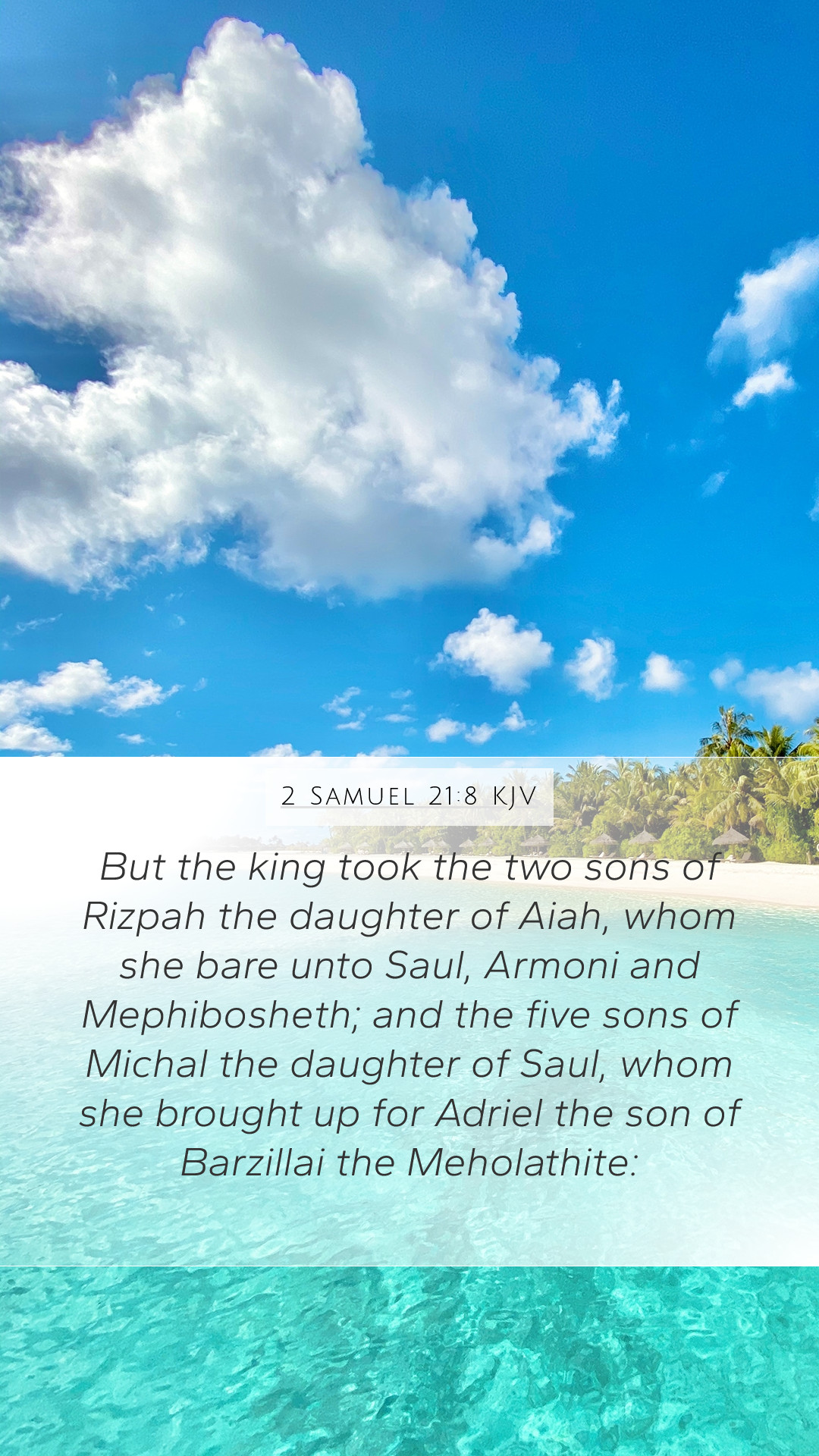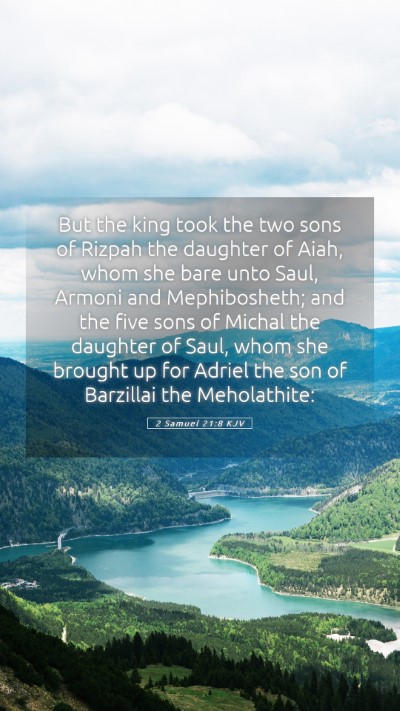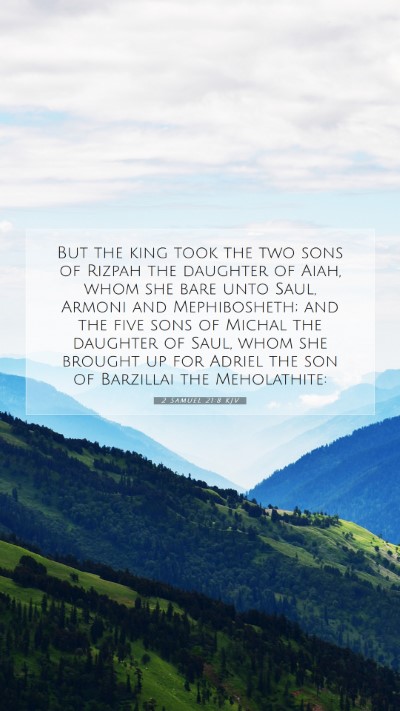Understanding 2 Samuel 21:8
Bible Verse: 2 Samuel 21:8 - "But the king took the two sons of Rizpah the daughter of Aiah, whom she bare unto Saul, Armoni and Mephibosheth; and the five sons of Michal the daughter of Saul, whom she brought up for Adriel the son of Barzillai the Meholathite."
Context of the Verse
The narrative in 2 Samuel 21 emerges during King David's reign, specifically focusing on the repercussions of Saul's actions for which the Gibeonites seek justice. This chapter highlights the challenges and moral complexities David faces as a leader, especially regarding familial ties and national responsibilities.
Verse Summary and Meaning
This verse presents a grim part of Israel's history, where King David, faced with a famine and seeking to appease the Gibeonites, responds by handing over the sons of Saul to them. By taking the sons of Rizpah and Michal, David is portrayed in a complex light—obliged to fulfill a perceived duty, yet simultaneously deepening the sorrow of these mothers.
Insights from Commentators
-
Matthew Henry:
Henry emphasizes the tragic irony where David's decisions reflect both his desire for peace and the painful legacy of Saul’s sin. The act illustrates the consequences of violence and betrayal, extending beyond individuals to their families.
-
Albert Barnes:
Barnes highlights the importance of understanding the historical context behind David's actions, noting that the handing over of Saul's descendants was part of a larger pattern where justice must prevail, though it incurs great personal cost for those involved.
-
Adam Clarke:
Clarke offers a deeper dive into the identity of those involved, questioning the historical accounts of Michal's sons and recognizing Rizpah as a symbol of loyalty and sorrow, standing vigil for her children amid a tumultuous narrative arc in Israel’s history.
Moral and Theological Implications
This verse underscores the theme of sacrifice and the often harsh realities of leadership. It raises questions about justice, mercy, and the extent to which a leader must go to rectify past wrongs, reflecting the tension between public duty and private grief.
Applications for Today
Readers of 2 Samuel 21:8 are encouraged to reflect on the complexities of justice in their own lives. Questions such as 'How do our actions impact not only ourselves but also our families and communities?' arise from this narrative. In our own contexts, seeking justice may require difficult decisions that have far-reaching consequences.
Related Bible Verses
- 1 Samuel 28:9-10 - Discusses the grave actions and decisions of King Saul.
- 2 Samuel 21:1-2 - Provides context for David’s actions after the famine.
- 2 Samuel 4:4 - Relates to Mephibosheth’s backstory and his significance.
- Galatians 6:7 - Highlights the principle of reaping what one sows, reflective of Saul's lineage.
- Matthew 5:7 - Emphasizes mercy, which contrasts the justice seen in David's choice.
Conclusion
In conclusion, 2 Samuel 21:8 serves as a poignant reminder of the depth of consequences borne from choices made in the past. It challenges readers to think critically about justice, lineage, and mercy within their lives, while also inviting introspection on how these themes interweave with the broader narrative of Scripture.
Further Study Recommendations
For deeper insights, readers may utilize various Bible study tools and engage with Bible study groups focusing on historical context, deep exegesis, and thematic studies that can enrich understanding of such complex passages.


